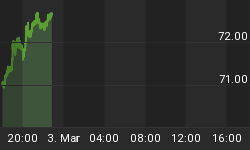The freedom to fail is an essential part of freedom. Government provided financial security necessitates relinquishing the very essence of freedom. Last week, the big 3 American automakers came back to Capitol Hill with their hands out to the government. Congress spent this past week debating how much money to give them and what strings should be attached. Though the bailout plan for the auto industry has suffered what I would call a temporary setback in the Senate, other avenues for public funding are being explored through the Federal Reserve and the Treasury Department. I am afraid the American auto industry will soon learn that having billions rain down from Washington will not be the blessing one might expect.
The government, after it subsidizes an industry, tends to become a very demanding benefactor. Politicians may not have any real idea about how to build a car, run a bank, educate a child, heal the sick or build a road, but they are quite adept at using carrots and sticks to manipulate and threaten those who do. Most of the federal control over education, roads, healthcare, and now banking and soon auto manufacturing, is done through money, mandates and conditions. The bailout proposal we were considering would force automobile manufacturers to submit their business plans for the approval of a new federal "car czar." This bureaucrat would have the authority to approve the automakers' restructuring plan, monitor implementation of the plan, and even stop certain transactions he determines are inconsistent with the companies' long-term viability.
One could argue that if billions of taxpayer dollars are going to flow into a failing industry, then representatives of those taxpayers have "bought" a say in how that industry is run - which is precisely why bailouts are such a bad idea for both the industry and the taxpayers. The federal government has neither the competence nor the Constitutional authority to tell private companies, such as automakers, how to run their businesses. I would have thought that failed experiments with central planning and government control of business that caused so much harm in the last century would have taught my colleagues the folly of making businesses obey politicians and bureaucrats instead of heeding the wishes of consumers, employees, and stockholders. But the auto industry is in danger of learning for themselves one of the oldest lessons in politics: he who pays the fiddler calls the tune.
It is not the job of government to sustain business. The government should get out of the way, and instead examine excessive regulations, tax policy and red tape that have been hostile to manufacturing in this country. We should get back on a sustainable economic course in this country, or we are doomed to collapse, as the Soviets did, under the crushing burden of big government and a strangled economy that can no longer pay for it.
















